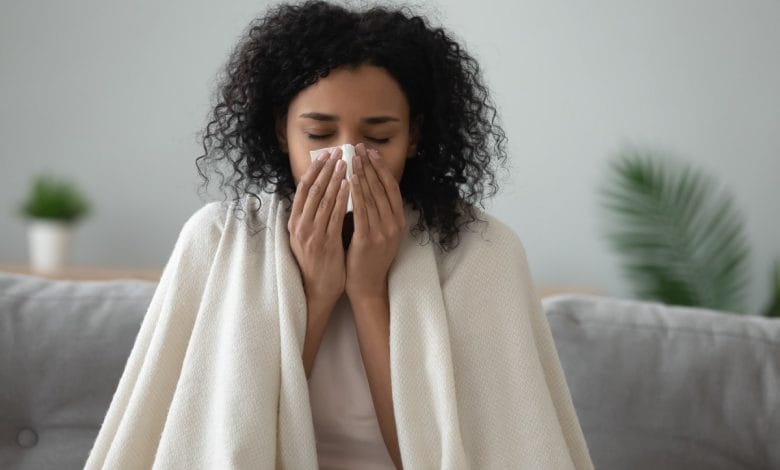Seasonal Illnesses: Learn More About Seasonal Illnesses

Seasonal Illnesses: There are a few diseases that are characteristic of each season. Spring allergies and hay fever in spring, Typhoid, malaria, and dengue in summer, hepatitis A and diarrhea in monsoon, and flu and bronchitisi in winter are some of the seasonal diseases you should be aware of. While some of them go away with good food and some rest, others leave you feeling tired, taking time off from work, and in worst cases, hospitalization.
Diseases are natural calamities and are out of your control. What you can control are the measures you take in keeping yourself and your loved ones safe from them. Being aware of various seasonal diseases can reduce your hospital visits, stop you from missing work, and reduce your medical costs to a large degree.
Anyone who has been to the doctor for a visit knows that it is an expensive affair. The number of dengue cases reported to WHO increased over 8 fold over the last two decades, and an average of 5.2 million cases of dengue were listed every year. Unfortunately, this is excluding loss of pay, worker replacement costs, and reduced productivity.
Seasonal Illnesses, That is why it is essential to keep up with your immune shots, consume healthy and nutritional food and enough water and make sure that you adhere to personal hygiene. In this article, we will explore some of the diseases common in each season and a few precautionary measures you can take to keep you and your loved ones safe from them.
1. Summer

Seasonal Illnesses, The common diseases of summer include mosquito borne diseases like malaria and dengue, diarrhoea, food poisoning, flu, water borne diseases like typhoid and jaundice, chicken pox, heatstroke and sunburn. The increase of temperature in summer helps bacteria multiply, thereby increasing the spread of many bacterial infections.
Avoid these summer diseases by taking the following precautions:
Ensure that there are no breeding places for mosquitoes around the house
Wash your hands thoroughly after being in crowded places
Seasonal Illnesses, Since food gets spoilt quickly due to the increase in temperature, make sure that leftover food is refrigerated at the earliest. Avoid eating in unhygienic places, prevent dehydration and ensure you drink boiled water
Avoid exposure to viral infections like seasonal flu and chicken pox
Avoid going out between 11 am and 4 pm as much as possible to prevent heatstrokes
Use sunscreen to avoid sunburn and cover your head and face with a scarf or hat
Stay within recommended alcohol limits and maintain a healthy weight to prevent jaundice.
2. Winter

Seasonal Illnesses, Winter illnesses include cold, cough, flu, bronchitis, dry and itchy skin. Most often, the diseases of winter, like Norovirus which is one of the most common gastrointestinal infections, are caused by viral infections. These cold and flu season diseases can be avoided by taking necessary precautions:
Wear suitable clothes
Cover your mouth and nose while sneezing or coughing
Regularly wash your hands with soap and water
Avoid exposure to illness at home or school
Try wearing a mask when in a gathering or crowded places
Have a balanced, healthy diet to build immunity
If you have a pre-existing lung or respiratory infections, consult a specialist during the change of season
Seasonal Illnesses, Vaccination against flu may be considered for people at a high risk of getting flu and for people who are vulnerable like young children, pregnant women, people with chronic health conditions like asthma attacks, diabetes, heart and lung disease and people over 65 years
Moisturise your skin regularly to prevent dry and itchy skin
You may do steam inhalation if you experience chest congestion or cough during this season.
3. Monsoon

Seasonal Illnesses, Along with rains, monsoon brings a host of diseases. The dampness, slush and stagnant water are breeding grounds for a host of organisms and their vectors causing diseases such as malaria, diarrhea, typhoid, dengue, chikungunyai, cholerai, hepatitis A, stomach flu, viral diseases such as viral fever, conjunctivitis etc.
Many of the diseases of monsoon like malaria, dengue, and chikungunya are transmitted by insect bites. They usually breed in waterlogged places.
Seasonal Illnesses, Cholera, typhoid, stomach infections, diarrhea and hepatitis A are water borne diseases, which usually spread through contaminated food and water.
Viral diseases are usually spread by air containing contaminated droplets of viruses released by infected people.
Take the precautions mentioned below to reduce the risk of contracting these diseases:
Seasonal Illnesses, Make sure that there are no pools of stagnant water. Keep water containers clean and ensure that flower containers and plates do not hold stagnant water.
Use insect repellents to avoid being bitten by mosquitoes.
Wash hands before eating
Avoid eating in unhygienic places
Drink boiled water
Avoid exposure to people infected with viral diseases
Seasonal Illnesses, Now that you’ve learned about seasonal diseases, here are some pointers to keep you disease-free. Simple steps like being aware of the seasonal conditions at a specific location can prevent the onslaught of seasonal ailments.
Conclusion
Seasonal Illnesses, Every season is dominated by certain diseases that make their presence felt. While cases of malaria, dengue, diarrhea, typhoid, and sunstroke are reported heavily during summer, winter commonly brings illnesses like bronchitis, cold, cough, and flu. Similarly, the damp monsoons are conducive to the growth of organisms that cause malaria, diarrhea, dengue, chikungunya, cholera, hepatitis A, and viral fever, and spring brings with it severe allergic reactions.
Seasonal Illnesses, If you take the precautions for each season listed above, you will most likely escape from falling prey to seasonal diseases. Most importantly, eat immunity-boosting foods, keep your surroundings clean, maintain personal hygiene, and drink pure water.
Also Read:
10 Best Home Remedies For Treat Sore Throat
Ginger Has Been Used For Thousands Of Years. What Are Its Health Benefits?




